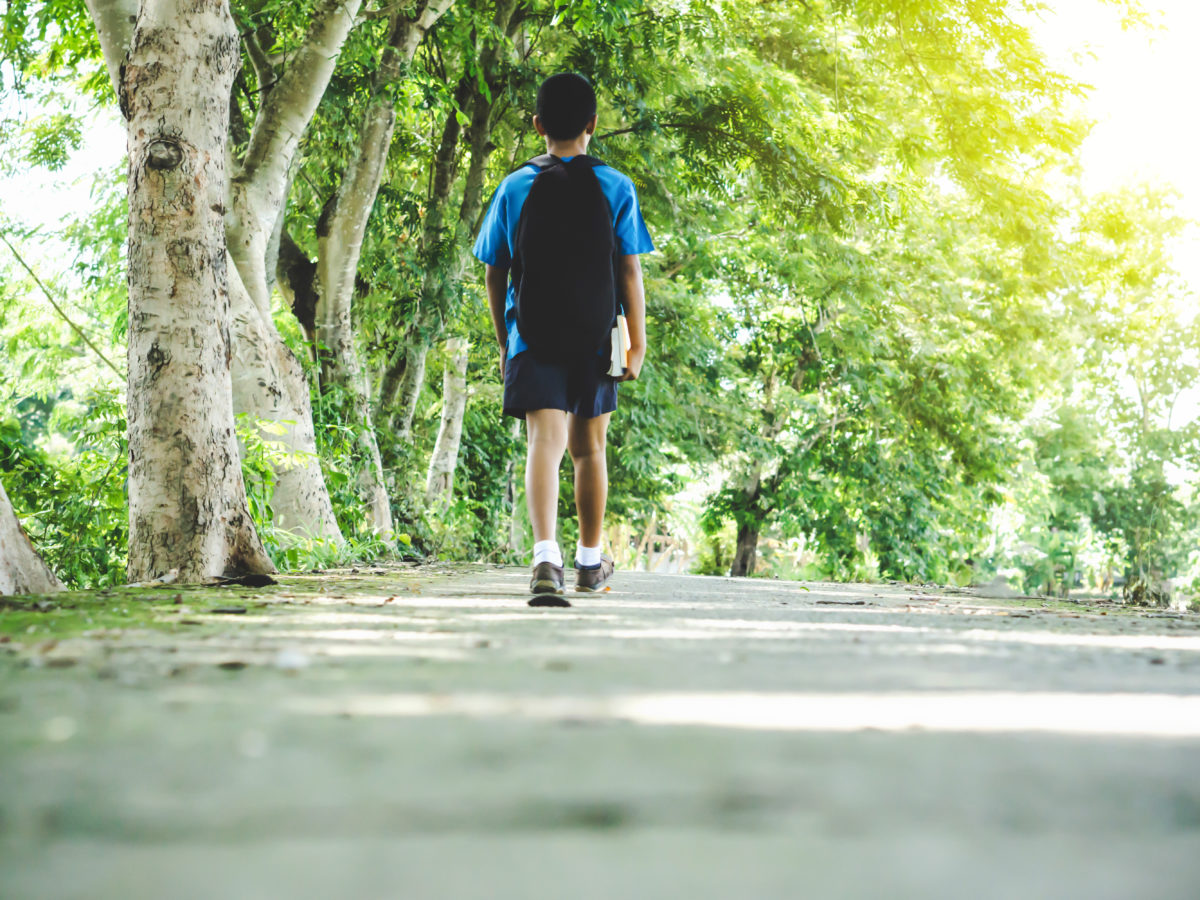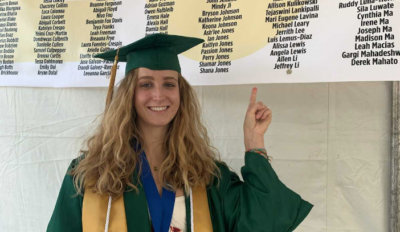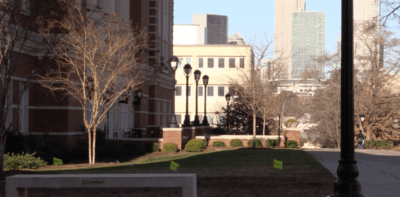
As a band director, the coronavirus turned me into a person I didn’t recognize, and I am beginning to figure out how to become OK with that. If you are an educator like me, you probably led a semi-continuously busy life made up of moments. You planned those moments based off events through the year. From one event to the next, you would check the boxes.
For me, it looked like this: Holiday Concert? Check. All district auditions? Check. All county clinic? Done. Summer Convention schedule released? I’m ready.
Life was busy, and it was beautiful. With the passing of each event you felt more excitement to reach the next moment in time. You loved the structure of your pre-COVID-19 life and your ability to make a direct difference in the lives of the young people who trusted you to lead them. As a pre-coronavirus coach, dance instructor, or fine arts teacher, you went from changing the world one rehearsal or practice at a time to sitting on the couch in your eerily quiet living room.
You went from booked evenings and packed weekends to forcing yourself to open the backdoor for fresh air. You get fancied up to go to the grocery store with hopes that you will see any other form of face-to-face human life. Coronavirus you is not vibrant. Coronavirus you is not outgoing. And while coronavirus you has all the time in the world to be busy and get tasks done, you don’t want to move from your comfortable, you-shaped cushion on your new couch.
Why is that? How can you go from one of the most task-oriented people you know, to having to muster the motivation to tackle simple tasks? This shift is caused by much, much more than COVID-19, and to understand it, we’re going to have to look at the realm of psychology and, more specifically, grief.
A brief on grief
Grief is the common, internal feeling one faces when they react to loss. Bereavement is the “state of being” experienced when one has lost someone. If you have ever taken an introduction to psychology course, you have probably heard of the 5 stages of grief detailed in the book, On Grief and Grieving: Finding the Meaning of Grief through the Five Stages of Loss, co-authored by Elisabeth Kubler-Ross and David Kessler. The book explored the grief process and identified 5 non-linear stages that exist throughout.
- Denial
- Bargaining
- Anger
- Depression
- Acceptance
Kubler-Ross explained in the book that the stage of denial deals with bereavement and the feeling of disbelief for what has happened. The bargaining stage is known as the trade-off stage. During this development, the individual tends to make a deal with fate to gain more moments of time with the loved one they lost. In the anger stage, individuals find something or someone to place blame. In this stage, questions of fairness arise. The sadness stage sends individuals into deep depression and helplessness, and acceptance is the stage in which individuals feel a sense of understanding and the ability to continue through their grief journey.
Many, including myself, believed that grief only occurs when mourning the death of a loved one. It took me by surprise when I was talking through many of my thoughts and emotions surrounding COVID-19 with my principal, and she proclaimed, “You’re experiencing grief.”
“I can’t be experiencing grief,” I thought.
I have experienced the pain of mourning a death, and this feeling was nothing like it. I walked away from that conversation feeling like I was exaggerating the emotions I felt. I did not believe I could ethically compare losing a few concerts and events to the loss of a loved one. So I did some research, and here’s what I found.
Understanding the COVID-grief
“Grief is like the ocean; it comes on waves ebbing and flowing. Sometimes the water is calm, and sometimes it is overwhelming. All we can do is learn to swim.”
– Vicki Harrison
Grief is highly individualized. Frequently, when we experience loss, we are able to skip many of the stages of the process. Others may experience instances where the stages reoccur. Kubler-Ross also believed that the stages of grief could be applied to any significant feeling of personal loss, not just death of a loved one. Kubler-Ross believed people could also experience grief over loss of a job, a relationship, anticipating one’s own death, or similar experiences.
Grief can be encountered by all who have had a major personal loss. For many, COVID-19 uprooted many aspects of day-to-day life: work, leisure, child care, and more. People all over the world have been forced to change their plans and adapt to new, uncertain circumstances. People have lost their normal routine and events they look forward to; as such, people are grieving what we could call a loss of expectation.
This means that COVID-19 grief is a reality and your feelings of loss and fear are valid. The truth is, there is not a “normal” type of grief. If you were to Google “types of grief,” you would meet an onslaught of websites labeling more than 10 different archetypes of grief. Anticipatory, complicated, cumulative, and disenfranchised grief are just a few types that explain our COVID-19 life.
Anticipatory grief deals with the fear of what the future may hold. One typically incurs this type of grief when he or she receives a bad diagnosis, or when they begin to think of their own parent’s mortality, however, this type of grief also deals with the fear of the unknown. In a recent conversation with the Harvard Business Review, David Kessler stated the following:
With a virus, this kind of grief is so confusing for people. Our primitive mind knows something bad is happening, but you can’t see it. This breaks our sense of safety. We’re feeling that loss of safety. I don’t think we’ve collectively lost our sense of general safety like this. Individually or as smaller groups, people have felt this. But all together, this is new. We are grieving on a micro and a macro level.
As Kessler mentions, the coronavirus is a threat that we can’t see. Further, it is unlike anything we have experienced, so we have difficulty predicting it and knowing what to expect. This uncertainty about the future is where anticipatory grief — this fear of what might lie in wait — can come into play. Anticipatory grief is related to anxiety and the fear of “what comes next.”
Complicated grief includes three different subtypes: chronic, delayed, and distorted. This grief type focuses on the feelings of loss that are long-lasting and disrupt your ability to do daily activities. For instance, this type of grief could manifest as the increased difficulty in getting off of the couch day after day. Some other possible symptoms of this grief are anger and irritability towards others and oneself. Complicated grief reminds us that being stuck in quarantine may not be the only reason you’re getting fed up with your significant other.
Cumulative grief refers to the feeling of loss one experiences when there is a chain of negative events one after the other following a loss. One encounters this type of grief when a second loss occurs while you are still grieving over the first. One tough aspect of COVID-19 has been the slow cancellations of every event and experience from March through the summer and beyond. To many — myself included — it has felt as if life was slowly being taken away one moment at a time. The intense feeling of loss that you may feel is cumulative grief.
You have not finished grieving over the loss of the musical being canceled, and now you’re having to deal with your spring recital being canceled as well. Both events are losses and caused a major disruption to your life. Continued disruptions and losses can send one into a tailspin that leads to a constant recycling of the grieving process. Because of this, the cumulative grief cycle could be very damaging to one’s psyche.
Disenfranchised grief occurs when society attempts to invalidate the grief of an individual, which leads to disenfranchisement. Many teachers are hearing invalidating statements such as, “At least you’re still getting paid. I’d like to get paid to sit around” or “I bet you’re happy to have more time with your family.”
Many of our students, specifically the class of 2020, are experiencing disenfranchised grief. How many of us have read statements such as, “It’s just prom” or “It’s not like they aren’t going to graduate. They just can’t walk on the stage. I wish I could’ve skipped my graduation”? While well-meaning, these statements serve to invalidate the intense feeling of loss that many students and staff are experiencing. These comments send the message that we “shouldn’t” feel this loss. Because of this, many become disillusioned from the grief felt.
The current culture has often made grief felt by educators and students insignificant. Without the ability to acknowledge this grief, feelings of anger, sadness, or loss can arise and be mis-attributed to other issues. All of this feeds the continuation through the grief cycle.
The human brain searches to make sense of what surrounds it. Unfortunately, we are in a constant state of an unknown, fear-inducing world, with a myriad of grief types that force us to feel lost even when we’ve jumped on our seventh Zoom call of the week. What can we do to overcome this grief?
Where do we go from here?
“We grieve because we love. How lucky we are to have experienced that love?”
-Jahanvi Sardana
The first step of overcoming grief is understanding. This article doesn’t exist to be an exhaustive guide on how to overcome grief, but more to bring an awareness to what we may be experiencing. Some may be in our denial stages, pretending that the virus doesn’t exist, or in our anger stages where we are extremely angry with the social distancing measures put in place that have caused so much loss and anxiety in our lives. Bargaining may have occurred where we have decided to distance ourselves to be safe for a short period of time in hopes that everything would be “normal” after two weeks. Many of us may be feeling a sense of sadness or hopelessness believing that there is no end in sight.
Rather than be future-oriented, I believe that in this time we should stay present-focused. Every individual should extend grace and compassion to others and work every day toward acceptance.
I believe, much like Kessler, that there is a sixth stage of grief following acceptance. This stage deals with giving a meaning and purpose to the grief we experienced.
I believe that each of us has the unique ability to reach the end of this pandemic stronger, with a few new skills and an abundance of lessons learned. We have to expect and understand that we may not function at the level that we normally might during this time — and that’s OK! As educators, our focus should be on providing. What experience can we create? What joy can we exude? What smile can we provide to our students and families in need?
Provide joy. Provide happiness. Provide humility. Provide understanding.
Grief is difficult. The emotions experienced are confusing and messy. We must understand that many of our days we will not be able to give as much of ourselves as we are used to, and that is OK.
Our 100% will be different each day, but we must focus on doing our best to provide what we can for the career that we love. The most important lesson I hope we all take away is to always love and appreciate the gifts life gives us every day.




